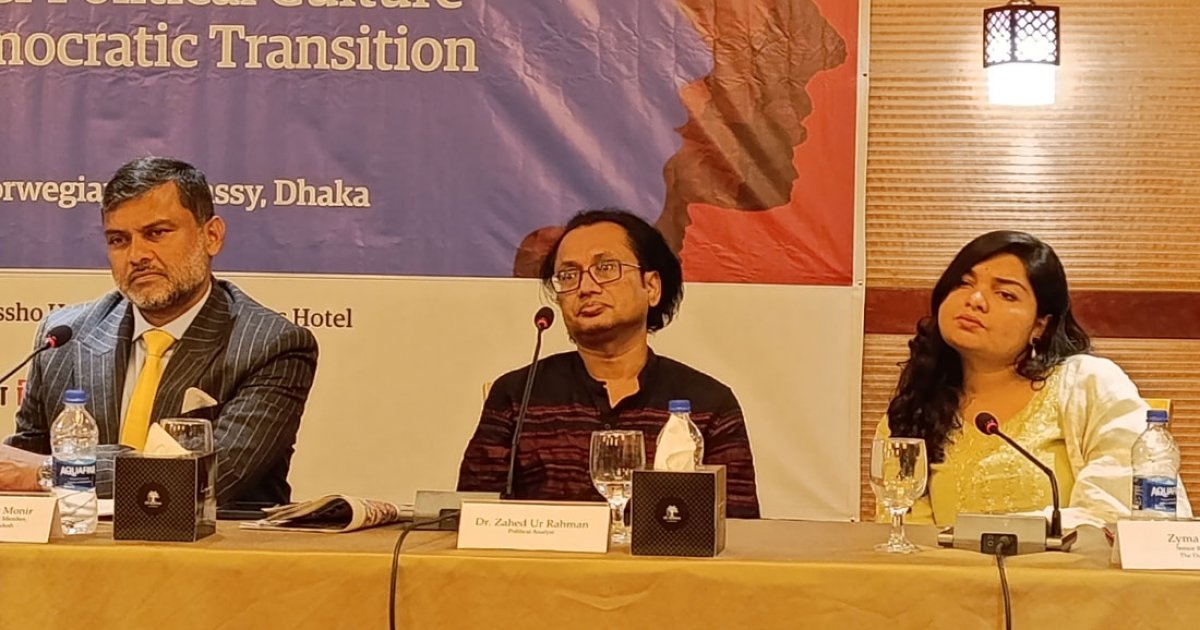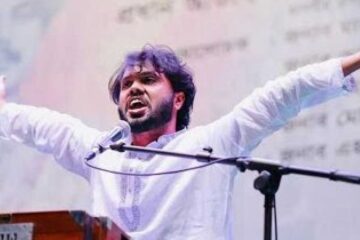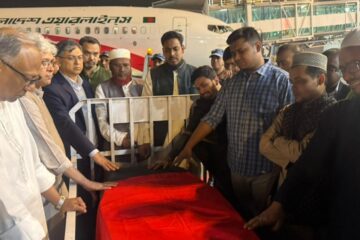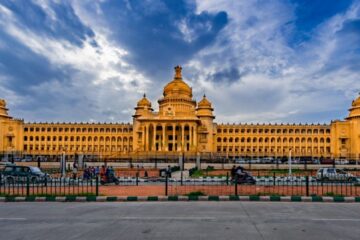Political analyst Zahed Ur Rahman has expressed concern over the future of Bangladesh’s political culture, warning that religion-based politics could become a growing threat.
“The most worrying thing in our country is that while the right-wing politics of Europe and America are focused on immigrants, in our country it will be based on religion — because in India it is based on religion,” he said.
“This religion-based politics will be seriously worrying, and after August 5, we are already seeing some such signs. So, I am not optimistic that we will be able to create a good political culture in the future,” he added.
He made the remarks at a Dhaka Tribune seminar titled “In Pursuit of a Better Political Culture in Bangladesh’s Democratic Transition” held at a hotel in the capital’s Gulshan area on Tuesday morning. The event was supported by the Embassy of Norway in Dhaka, with the Bangla Tribune as the media partner.
Reflecting on recent political developments, Zahed said: “After August 5, I was not surprised at all. Frankly speaking, I did not expect much. In many of my talks after August 5, I tried to warn people not to expect too much. Over the last 15 years, we have been under serious authoritarian regimes. I would not call it fascist — in my view, it was hardly fascist. But from 2018 onwards, it became a classic example of a mafia regime.”
He added that during this period, the ruling party relied on “brute force” and “used the state apparatus for organized crime.”
Zahed noted that despite the authoritarian environment, Bangladesh avoided internal conflict. “What was supposed to happen happened, and I am really happy with the way we treated each other,” he said. “Our political parties have shown great tolerance. We have not been in a civil war. Yes, we have seen an increase in political violence — probably the highest in four years — but compared to post–Arab Spring revolutions, where three countries saw civil wars, our situation is relatively better.”
Speaking about the road to the next election, he said: “We are moving towards elections. There is some rhetoric and some political activity, but all of this is part of a bargaining process. Eventually, we will reach an election, and it will be a real contest.”
He added: “Nowadays, the nature of people is changing. Political parties are interested in seizing power through democratic processes. But we must remember that democracy often dies within a constitutional framework — people are elected, they come to power, and then they make changes that kill democracy.”
The seminar has brought together participants from diverse professional backgrounds. Notable discussants include Dr Rounaq Jahan, Political Scientist and Distinguished Fellow at the Centre for Policy Dialogue (CPD); Håkon Arald Gulbrandsen, ambassador of Norway to Bangladesh; political analyst Dr Zahed Ur Rahman; Barrister Shishir Manir, member of Bangladesh Jamaat-e-Islami; Dr Mirza M Hassan, senior research fellow at Brac University; Mohammad Asaduzzaman, director of research at the Dhaka Institute of Research and Analytics (DAIRA); journalist Zyma Islam of The Daily Star; Dr Asif M Shahan, professor at the University of Dhaka; and Fahim Mashroor, member of the Citizens’ Coalition.



